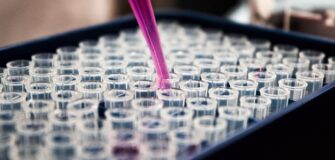A woman diagnosed as HIV-positive in 2013 may have achieved a natural sterilisation cure without stem cell transplant.
A sterilising cure is achieved when replication-competent proviruses have been eliminated. This is said to have only ever been achieved by two patients, both of whom had leukaemia and underwent allogenic hematopoietic stem cell transplants. Antiretroviral therapy (ART) can effectively suppress viral replication in HIV-1, but a sterilising cure during natural disease is currently considered elusive.
Some patients living HIV-positive, frequently called “elite controllers”, have undetectable virus via polymerase chain reaction (PCR) assay, but reservoirs of replication-competent HIV-1 persist.
Xu Yu, MD, a member of the Ragon Institute of Massachusetts General Hospital (MGH), MIT and Harvard, has been studying the HIV reservoirs of elite controllers. Her research group identified one patient who had no intact HIV viral sequence in her genome, indicating that her immune system may have eliminated the HIV reservoir — what scientists call a sterilising cure.
Yu’s team sequenced billions of cells from this patient, known as the San Francisco Patient, searching for any HIV sequence that could be used to create new virus, and found none. This finding, the first known incidence of a sterilising cure without a stem cell transplant, was reported in Nature in 2020 (and Yu discusses in this video).
The group has now reported a second untreated HIV-infected patient, known as the Esperanza Patient, who, like the San Francisco Patient, has no intact HIV genomes found in more than 1.19 billion blood cells and 500 million tissue cells sequenced. This report, published in the Annals of Internal Medicine, may represent a second instance of a sterilising cure.
“These findings, especially with the identification of a second case, indicate there may be an actionable path to a sterilising cure for people who are not able to do this on their own,” said Yu, who is also a physician investigator at MGH.
Yu explained that these findings may suggest a specific killer T cell response common to both patients driving this response, with the possibility that other people who are HIV-positive have also achieved a sterilising cure. If the immune mechanisms underlying this response can be understood by researchers, they may be able to develop treatments that teach others’ immune systems to mimic these responses in cases of HIV infection.
“We are now looking toward the possibility of inducing this kind of immunity in persons on ART through vaccination, with the goal of educating their immune systems to be able to control the virus without ART,” Yu said.
Original content from Hospital and Healthcare. Note: Content has been edited for style and length.
Nina Alvarez is a Content Producer for Healthcare Channel. Her interests include writing, particularly about the healthcare sector and the many ways it can improve to further benefit people from all walks of life.






























